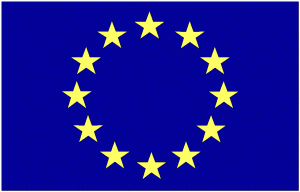Securing Medical Data in Smart Patient-Centric Healthcare Systems
Healthcare management is an increasingly complex, multi practitioner driven entity, precipitating a pressing need to collect and share highly confidential and personal medical data, obtained from a variety of sources; including personal medical devices. Data sharing may be necessary through a variety of means, including public networks and other systems, whose security cannot be implicitly trusted. Patients rightly expect full privacy, except where permission has been explicitly given, but they equally expect to be provided with the best possible medical treatment. Evidence suggests that integrating home-based healthcare into a holistic treatment plan is more cost effective, reduces travel-associated risks and costs, and increases the quality of health-care provision, by allowing the incorporation of more frequent home-, work- and environment-based monitoring and testing into medical diagnostics. There is a strong and urgent demand to deliver better, more efficient and more effective healthcare solutions that can achieve excellent patient-centric healthcare provision, while also complying with increasingly strict regulations on the use and sharing of patient data. This provision needs to be multi-site, crossing traditional physical and professional boundaries of hospitals, health centers, home and workplace, and even national borders. It needs to engage hospitals, medical practitioners, consultants and other specialists, as well as incorporating patient-provided data that is produced by personal monitoring devices, health-care apps, environmental monitoring etc. This creates huge pressures. The goal of the SERUMS project is to put patients at the center of future health-care provision, enhancing their personal care,and maximizing the quality of treatment that they can receive, while ensuring trust in the security and privacy of their confidential medical data
It is the role of the University of St Andrews, under the leadership of Dr Juliana Bowles to coordinate the Serums Project. Serums forms part of the Horizon 2020 initiative and combines the expertise of our ten partners across seven countries. The Serums project aims to center future healthcare provision around patient need, enhancing personal care, and maximizing treatment quality, while ensuring patient trust in the security and privacy of their confidential medical data.
The concrete objectives of the Serums project are:
Objective 1: To develop new techniques that will ensure the security and protection of personal medical data that is shared as part of a coherent smart healthcare system between patients, hospitals and medical practitioners, including across (possibly open and/or public) untrusted networks. This fulfils part of Aim 1.
Objective 2: To integrate personal medical data from multiple sources into a single coherent smart patient record, including from personal medical monitoring devices, general practitioners, specialists and hospitals. This also fulfils part of Aim 1.
Objective 3: To develop new data analytic techniques that will be able to take advantage of advances in the availability of heterogeneous real-time personal healthcare information, as part of a holistic smart healthcare system, while respecting privacy and security concerns. This fulfils the remainder of Aim 1 and part of Aim 2.
Objective 4: To develop/enhance authentication and trust mechanisms that ensure that only properly autho• rized agents have access to the required parts of (personal and/or) medical data that are required to carry out their duties etc. This fulfils the remainder of Aim 2 and part of Aim 3.
Objective 5: To demonstrate world-leading levels of compliance with emerging legal and ethical requirements for the protection of personal and medical data across national boundaries, including transnational requirements such as GDPR. This fulfils the remainder of Aim 3.
Objective 6: To demonstrate the effectiveness of the Serums techniques against a variety of real-world medical use cases, including both ongoing and emergency medical care scenarios, providing confidence in the delivery of high quality, ethically and legally compliant smart healthcare. This fulfils part of Aim 4.
Objective 7: To ensure good uptake of Serums concepts and technologies through a dissemination and ex• ploitation approach that targets potential users of smart healthcare systems, as well as leading technology and healthcare providers. This fulfils the remainder of Aim 4.


